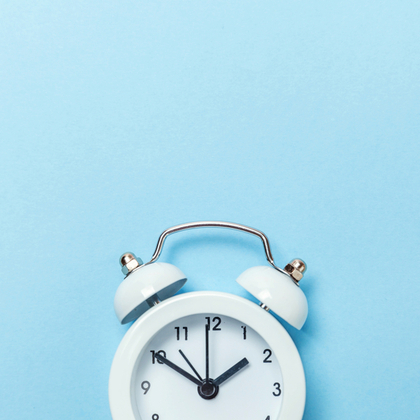
Sleep is often heralded as the most important pillar of health. It has, after all, taken Mother Nature 3.6 million years to put the basic need of 7-9 hours of sleep in place for the average adult. On the basis of all the evidence, it’s a non-negotiable biological necessity.
What is sleep?
Sleep is explained as a period of reduced mental and physical activity in your body. During sleep, we experience two different periods of brain activity called REM (Rapid Eye Movement) and non-REM sleep. During REM your brain is as active as when you are awake. This is where you may experience vivid dreams or nightmares. In comparison, non-REM sleep is the most restful deep sleep state. where your body begins to heal.

Why do we need to sleep?
Sleep is essential for our health and well-being. It allows your body and mind to heal, rejuvenate, and re-energize. Without it, there can be an increased risk of decreased memory and attention, reduced immunity, and mood swings.
What are five reasons why sleep is so important?
Sleep supports cognition
Most of us are familiar with the idea of ‘sleeping on it’ before making a big decision. Getting enough sleep oils the cogs of your neural architecture. It fuels concentration, attention, learning, memory, problem-solving, creativity and judgement (1). Sleep deprivation, on the other hand, paves the way for forgetfulness, brain fog and procrastination.
Sleep supports immune function
There’s much truth in the popular wisdom that ‘sleep helps healing’. Sleep balances the immune system, buffering your natural defences and keeping sick days to a minimum. During periods of poor sleep, your body decreases the production of protective cytokines, as well as infection-fighting cells and antibodies (5). Even one night of reduced sleep can significantly disrupt your immune system.
Sleep and weight loss
If you want to maintain a healthy weight, sleep needs to come before any dietary changes or new exercise regimes. Without adequate rest, your sleep-deprived brain turns to food for nourishment. Poor sleep accelerates the production of ghrelin, the neurotransmitter that increases appetite, and suppresses leptin, which signals food satisfaction (6). Getting enough sleep keeps your hunger hormones in check, making it easier to stay in shape.
Sleep supports cardiovascular function
Sleep plays an important role in blood pressure and glucose metabolism, both of which influence cardiovascular function (7). Rest can also indirectly affect heart health by impacting lifestyle choices. For instance, if you sleep better, you’re more likely to eat healthier and exercise more – vital components of a happy, healthy cardiovascular system.
Exercise and sleep
Alongside training and eating well, sleep is a crucial part of any exercise regime. Besides increasing energy and motivation to exercise, adequate sleep allows your heart to rest, enables your cells and tissue to repair, and prevents illness, all of which support athletic recovery and performance (8). Plus, sleep and exercise have a bidirectional relationship: just as sleep can aid exercise performance, exercise can help you sleep better.
Why is sleep important for mental health?
Sleep is also an important form of overnight emotional first aid. It serves as a soothing nocturnal balm, softening the sharp edges of difficult emotions or experiences so you feel better the next day.
Scientists are still unsure why REM (rapid-eye movement) sleep is so restorative for us. One theory is that we don’t secrete norepinephrine, a chemical associated with stress, during REM sleep. The ‘REM calibration hypothesis’ suggests REM sleep can reset norepinephrine levels, making the brain less reactive and sensitive to emotional stimuli (2). If your norepinephrine levels are disrupted, your emotions are more likely to be out of balance. It’s not surprising, then, that many mental health conditions are associated with insomnia and sleep disorders (3).
Sleep can also help regulate symptoms of physical discomfort, which are often exacerbated by poor psychological health. Many studies have reported that adequate rest may improve prolonged, persistent discomfort (4).
If you struggle with feelings of overwhelm, or low mood, getting enough sleep – and falling asleep in the first place – isn’t always easy. You can find out more about our natural sleep supplements to support your wellbeing and help you drift off here.
More information about sleep
Sleep is a rising tide that lifts all of our physical and emotional health boats. With it, there’s energy and vitality. Without it, there’s sickness and ill health. If you want to learn more about supporting your sleep hygiene, please visit the rest of our dedicated Sleep Health Hub.
You can also reach out to our expert Nutrition Advice to receive free nutrition advice. No matter how small your query, they’re happy to help.
Call: 01892 352927
Email: nutrition@naturesbest.co.uk
Write: Nature’s Best Ltd. Century Place, Tunbridge Wells, Kent, TN2 3BE
References:
-
How lack of sleep impacts cognitive performance and focus (2022) Sleep Foundation. Available online: https://www.sleepfoundation.org/sleep-deprivation/lack-of-sleep-and-cognitive-impairment
-
Gujar N. et al., A role for REM sleep in recalibrating the sensitivity of the human brain to specific emotions. Cerebral cortex. 1991;21(1), 115–123.
-
Li L. et al., Insomnia and the risk of depression: a meta-analysis of prospective cohort studies. BMC Psychiatry. 2016;16(1): 375.
-
Vitiello MV. et al., Short-term improvement in insomnia symptoms predicts long-term improvements in sleep, pain, and fatigue in older adults with comorbid osteoarthritis and insomnia. Pain. 2014;155(8):1547-1554.
-
Besedovsky . L, Lange. T, Born. J. Sleep and immune function. Pflugers Arch. 2012;463(1):121-37.
-
Weight loss and sleep (2022) Sleep Foundation. Available online: https://www.sleepfoundation.org/physical-health/weight-loss-and-sleep
-
British Heart Foundation (2022) How does sleep affect your heart? Available online: https://www.bhf.org.uk/what-we-do/news-from-the-bhf/news-archive/2019/november/sleep-and-heart-and-circulatory-diseases
-
Watson AM., Sleep and Athletic Performance. Curr Sports Med Rep. 2017;16(6):413-418.
Related Posts

Do I Have Symptoms Of Insomnia Or Just Trouble Sleeping?

Insomnia Treatments: Natural Remedies To Help You Fall Asleep

Why Am I Always Tired? Signs Of Poor Sleep Hygiene Explained

Olivia
Olivia Salter has always been an avid health nut. After graduating from the University of Bristol, she began working for a nutritional consultancy where she discovered her passion for all things wellness-related. There, she executed much of the company’s content marketing strategy and found her niche in health writing, publishing articles in Women’s Health, Mind Body Green, Thrive and Psychologies.
View More
